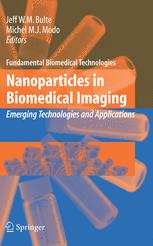

Most ebook files are in PDF format, so you can easily read them using various software such as Foxit Reader or directly on the Google Chrome browser.
Some ebook files are released by publishers in other formats such as .awz, .mobi, .epub, .fb2, etc. You may need to install specific software to read these formats on mobile/PC, such as Calibre.
Please read the tutorial at this link: https://ebookbell.com/faq
We offer FREE conversion to the popular formats you request; however, this may take some time. Therefore, right after payment, please email us, and we will try to provide the service as quickly as possible.
For some exceptional file formats or broken links (if any), please refrain from opening any disputes. Instead, email us first, and we will try to assist within a maximum of 6 hours.
EbookBell Team

4.7
76 reviewsAbout the Series:
Fundamental Biomedical Technologies features titles in multidisciplinary, technology-driven areas, providing the foundations for breakthrough advances in medicine and biology. The term technology refers, in a vigorously unrestrictive sense, to a broad array of engineering disciplines, the sciences of computation and informatics, mathematical models exploiting and advancing methods of mathematical physics, and the development of novel, experimental discovery devices. Titles in this series are designed and selected to provide high-level visionary input for specialists, while presenting overviews of emerging fields for those in related areas. Volumes in this series aim to provide technologists with the material to gain competent entry into biomedical research and biomedical researchers to understand and embrace novel technological foundations and tools.
About the Series Editor:
Mauro Ferrari is a professor in the Brown Institute of Molecular Medicine, a professor of internal medicine in the division of cardiology, and the chairman of the department of biomedical engineering at the University of Texas Health Science Center in Houston, Texas. He holds concurrent professor appointments at the M.D. Anderson Cancer Center as professor of experimental therapeutics, and at Rice University in bioengineering. Dr. Ferrari is the current President of the Alliance for NanoHealth and he has spearheaded the development of the National Cancer Institute’s nanotechnology programs. Dr. Ferrari is also the founder and Editor-in-Chief of Springer’s archival journal Biomedical Microdevices.
Nanoparticles in Biomedical Imaging
Jeff W.M. Bulte and Michel M.J.J. Modo, Editors
Nanoparticles in Biomedical Imaging focuses on the use of nanoparticles as chemically engineered small entities that now have emerged as widely used diagnostic agents in biomedicine. The book is logically organized by the specific imaging modalities that are currently central in pre-clinical research and clinical routine, including magnetic resonance imaging, radionuclear imaging, ultrasound imaging, computed tomography, and optical imaging. This comprehensive title provides an expert opinion on the latest developments in biomedical imaging using nanoparticles.
Key topics:
Use of superparamagnetic iron oxide nanoparticles in magnetic resonance imaging
Radiolabeled liposomes and their applications in nuclear medicine
Ultrasound bubbles as acoustically reflective medium
Exploiting iodinated nanoparticles with computed tomography
Quantum dots: the bright future of semiconducting optical agents
Nanoparticles in Biomedical Imaging will serve as a useful and valuable resource on the fundamental science of diagnostic nanoparticles in their interactions with biological targets, providing a platform technology for clinical implementation and improved detection of disease.
About the Editors:
Jeff W.M. Bulte is currently a Professor of Radiology and a Professor of Chemical & Biomolecular Engineering at the Johns Hopkins University School of Medicine in Baltimore, USA. He serves as the Director of Cellular Imaging in the JHU Institute for Cell Engineering.
Michel M.J.J. Modo is the Wolfson Lecturer in Stem Cell Imaging at the Centre for the Cellular Basis of Behaviour and the MRC Centre for Neurodegeneration Research at the Institute of Psychiatry, King’s College London.